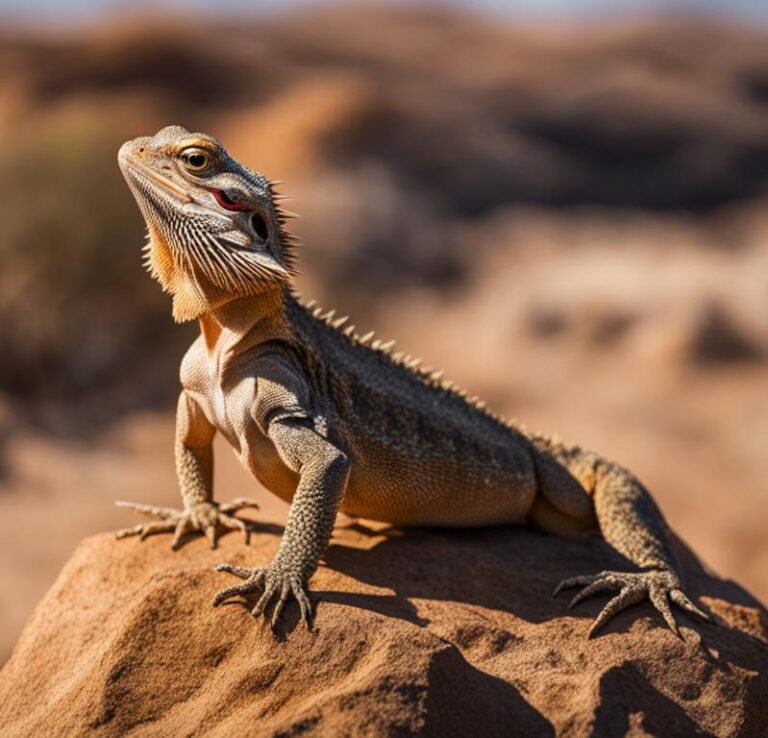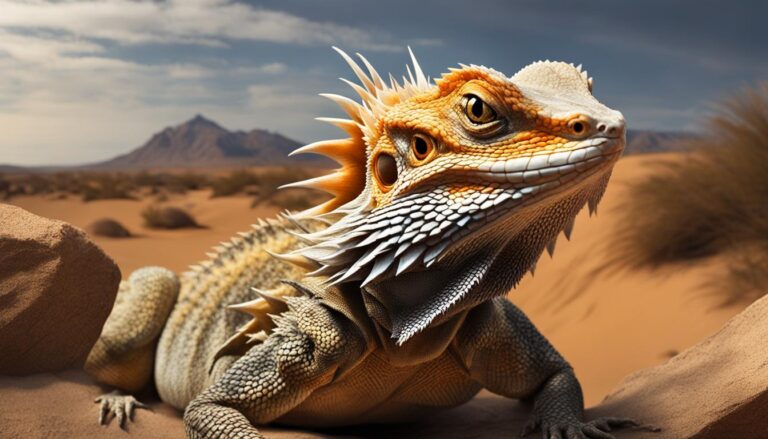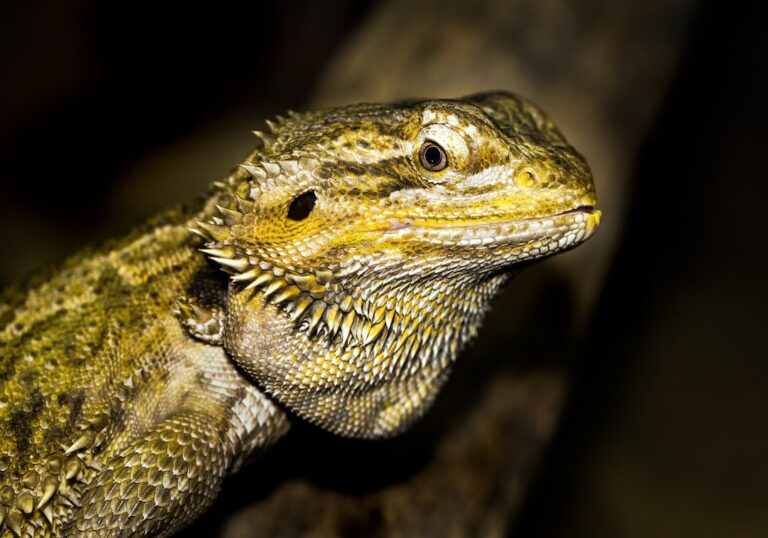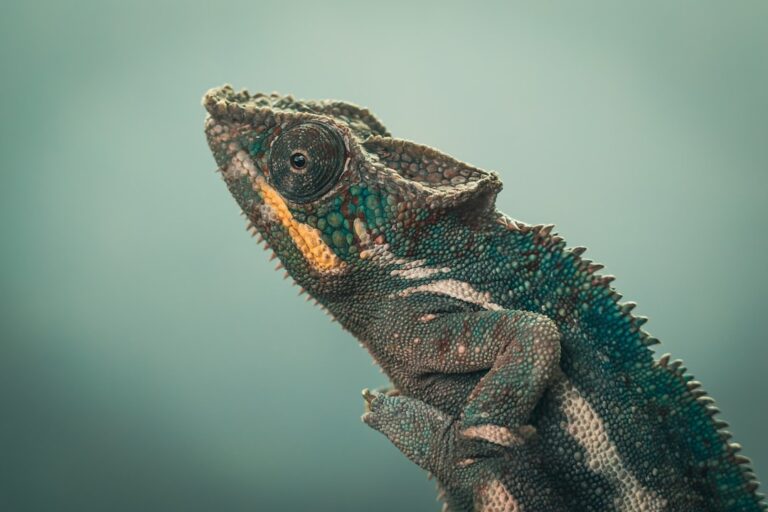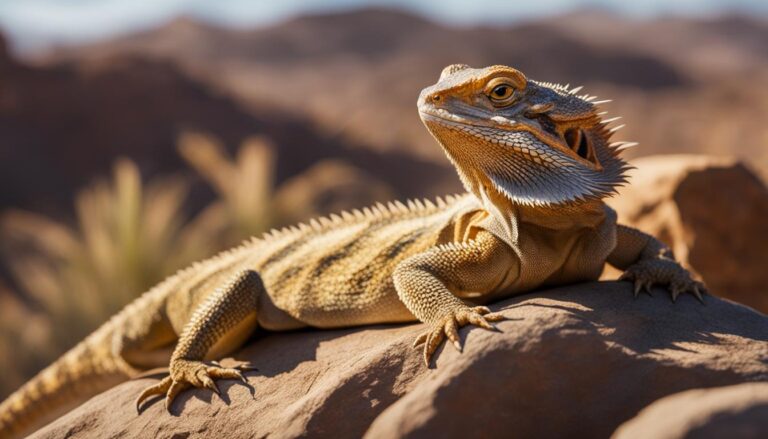Are Bearded Dragons Cannibals?
Bearded dragons are popular reptile pets known for their unique appearance and docile nature. These lizards are native to Australia and have become increasingly popular as pets due to their friendly demeanor and relatively low maintenance requirements. However, it is important for owners to understand the behavior of bearded dragons in order to provide them with the best care possible.
Understanding the behavior of bearded dragons is crucial for their well-being. By understanding their natural instincts and tendencies, owners can create an environment that promotes their physical and mental health. This includes understanding their feeding habits, social interactions, and potential behavioral issues such as cannibalism.
Table of Contents
Understanding Cannibalism in Reptiles
Cannibalism is defined as the act of one animal consuming another individual of the same species. While it may seem shocking, cannibalism is not uncommon in the animal kingdom, including among reptiles. There are several reasons why reptiles exhibit cannibalistic behavior.
One reason is competition for resources. In the wild, resources such as food and territory can be limited, leading to aggressive behavior and cannibalism. Another reason is the instinctual drive to eliminate potential rivals or threats to their own survival. This can be seen in situations where larger or more dominant individuals prey on smaller or weaker ones.
Do Bearded Dragons Eat Their Own Kind?
While cannibalism is not a common behavior in bearded dragons, there have been instances where they have been observed eating their own kind. This behavior is more likely to occur in captivity due to various factors that can trigger cannibalistic tendencies.
In some cases, bearded dragons may exhibit cannibalistic behavior if they are housed together in a small enclosure with limited space. This can lead to increased aggression and competition for resources, including food. Additionally, inadequate diet or a stressful environment can also contribute to cannibalistic tendencies in bearded dragons.
Factors That Can Trigger Cannibalism in Bearded Dragons
Several factors can trigger cannibalism in bearded dragons. One of the main factors is a lack of space. When bearded dragons are housed together in a small enclosure, they may become territorial and exhibit aggressive behavior towards each other, including cannibalism.
Another factor is an inadequate diet. Bearded dragons require a balanced diet that includes a variety of insects, vegetables, and fruits. If they are not provided with the proper nutrition, they may become more aggressive and exhibit cannibalistic tendencies.
Stressful environments can also contribute to cannibalistic behavior in bearded dragons. Loud noises, excessive handling, or other stressful stimuli can cause them to become anxious and aggressive towards each other.
Hormonal changes can also play a role in triggering cannibalism in bearded dragons. During breeding season, male bearded dragons may become more territorial and aggressive towards other males, leading to cannibalistic behavior.
The Role of Diet in Preventing Cannibalistic Behavior
A balanced diet is crucial for preventing cannibalistic behavior in bearded dragons. Providing them with a variety of insects, vegetables, and fruits ensures that they receive all the necessary nutrients for their health and well-being.
Insects such as crickets, mealworms, and dubia roaches should make up the majority of a bearded dragon’s diet. These insects provide essential protein and nutrients that are important for their growth and development. Vegetables such as collard greens, kale, and squash should also be included in their diet to provide fiber and vitamins.
It is important to establish a feeding schedule for bearded dragons to ensure that they are receiving the proper amount of food. Younger bearded dragons may require more frequent feedings, while adults can be fed every other day. Providing a consistent feeding schedule helps prevent hunger-induced aggression and cannibalistic behavior.
Signs That Your Bearded Dragon Might Be Cannibalistic
It is important for owners to be aware of the signs that their bearded dragon might be exhibiting cannibalistic behavior. This can help identify and address the issue before it escalates.
One sign is aggressive behavior towards other bearded dragons. If a bearded dragon is constantly displaying aggressive behavior towards its tank mates, such as puffing up its beard, bobbing its head, or biting, it may be exhibiting cannibalistic tendencies.
Another sign is biting or attacking other bearded dragons. If a bearded dragon is causing physical harm to its tank mates, such as biting or scratching, it is important to address the issue immediately.
A refusal to eat or loss of appetite can also be a sign of cannibalistic behavior. If a bearded dragon suddenly stops eating or shows a decreased interest in food, it may be due to stress or aggression from other tank mates.
How to Prevent Cannibalism in Bearded Dragons
Preventing cannibalism in bearded dragons involves creating an environment that minimizes stress and provides adequate resources for each individual. Here are some tips for preventing cannibalistic behavior:
1. Providing adequate space: Bearded dragons should be housed in enclosures that are large enough to accommodate their needs. Each individual should have enough space to establish its own territory and avoid unnecessary competition.
2. Separating bearded dragons that exhibit aggressive behavior: If a bearded dragon is consistently displaying aggressive behavior towards its tank mates, it may be necessary to separate them to prevent cannibalism.
3. Ensuring a balanced diet: Providing a balanced diet that meets the nutritional needs of each individual is crucial for preventing cannibalistic behavior. This includes offering a variety of insects, vegetables, and fruits.
4. Reducing stress in the environment: Creating a calm and stress-free environment for bearded dragons can help prevent cannibalistic behavior. This includes minimizing loud noises, excessive handling, and other stressful stimuli.
What to Do If Your Bearded Dragon Displays Cannibalistic Behavior
If your bearded dragon displays cannibalistic behavior, it is important to take immediate action to address the issue. Here are some steps you can take:
1. Separating the bearded dragon from others: If a bearded dragon is exhibiting cannibalistic behavior, it should be immediately separated from its tank mates to prevent further harm.
2. Consulting a veterinarian: It is important to consult a veterinarian who specializes in reptiles to determine the underlying cause of the cannibalistic behavior and develop a treatment plan.
3. Adjusting the diet and environment: The veterinarian may recommend adjusting the bearded dragon’s diet or making changes to its environment to reduce stress and prevent further cannibalistic behavior.
Cannibalism in Bearded Dragons: Myth or Reality?
There are some common myths surrounding cannibalism in bearded dragons that need to be debunked. One myth is that all bearded dragons are prone to cannibalism. While cannibalism can occur in bearded dragons, it is not a behavior that is exhibited by all individuals.
Another myth is that cannibalism only occurs in captive-bred bearded dragons. While it is true that cannibalism is more likely to occur in captivity due to various factors, it can also occur in wild populations.
There is evidence to support the reality of cannibalistic behavior in bearded dragons. There have been documented cases of bearded dragons eating their own kind, both in captivity and in the wild. It is important for owners to be aware of this behavior and take steps to prevent and address it if necessary.
Understanding and Managing Cannibalism in Bearded Dragons
In conclusion, understanding and managing cannibalism in bearded dragons is crucial for their well-being. By understanding the factors that can trigger cannibalistic behavior and taking steps to prevent it, owners can provide a safe and healthy environment for their pets.
Providing adequate space, separating aggressive individuals, ensuring a balanced diet, and reducing stress in the environment are all important steps in preventing cannibalism in bearded dragons. If cannibalistic behavior is observed, it is important to consult a veterinarian who specializes in reptiles for guidance and treatment.
By being proactive and attentive to their needs, owners can ensure that their bearded dragons live happy and healthy lives.
If you’re interested in reptiles, you may also want to check out this article on Are Turtles Cannibals? It explores the intriguing behavior of turtles and whether they engage in cannibalism. Discover fascinating facts about their feeding habits and social dynamics.


